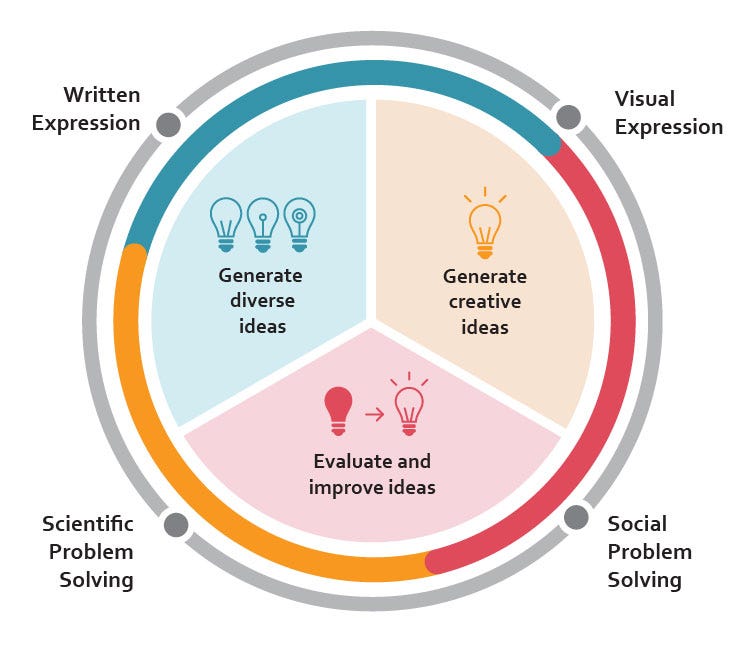What is Creative Thinking?
Creative thinking is the way of thinking that leads to the generation of valuable and original ideas. All people are capable of engaging in creative thinking and practicing ‘everyday’ creativity (addressing everyday activities in a non-conventional way). Creative thinking can be applied not only to contexts related to the expression of imagination, such as creative writing or the arts, but also to other areas where the generation of ideas is functional to the investigation of issues, problems or society-wide concerns.
The PISA assessment will examine students’ capacities to generate diverse and original ideas, and to evaluate and improve ideas, across a range of contexts or ‘domains’. The assessment includes four domains: written expression, visual expression, social problem solving and scientific problem solving. In each of these domains, students engage with open tasks that have no single correct response. They are either asked to provide multiple, distinct responses, or to generate a response that is not conventional. These responses can take the form of a solution to a problem, of a creative text or of a visual artefact.
Why is it important for students to develop Creative Thinking?
Creative thinking can have a positive influence on students’ academic interest and achievement, identity and socio-emotional development by supporting the interpretation of experiences, actions and events in novel and personally meaningful ways.
Beyond the classroom, creative thinking can help students adapt to a constantly and rapidly changing world. Supporting students’ creative thinking can help them to contribute to the development of the society they live in, today and as future workers: organisations and societies around the world increasingly depend on innovation and knowledge creation to address emerging and complex challenges, giving urgency to innovation and creative thinking as collective enterprises.
*PISA participating countries decided to postpone the PISA 2021 assessment to 2022 to reflect COVID difficulties.

